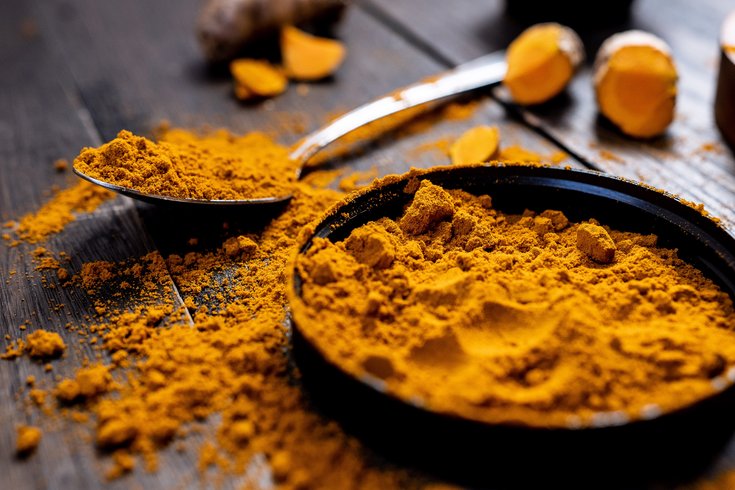
September 20, 2023
 Karl Solano/Pexels
Karl Solano/Pexels
A compound in turmeric may be as effective at treating indigestion as omeprazole, a common medicine used to treat acid reflux, according to a recent study.
A natural ingredient found in turmeric, a bright orange spice used in many soups, may be as effective at treating indigestion as a medication commonly used to curb excess stomach acid, according to a recent study.
People who took two capsules of curcumin, a compound extracted from turmeric, four times a day for about a month experienced similar relief from indigestion as those who took omeprazole, known by its brand name Prilosec, once a day over the same stretch, the study found.
The researchers at Chulalongkorn University in Bangkok, Thailand concluded curcumin and omeprazole each are effective at managing and relieving symptoms of indigestion – bloating, nausea, stomach pain and early fullness after a meal. But there was no added benefit when combining the two remedies.
The researchers said larger studies are needed to confirm the effectiveness of curcumin, but they said their findings may justify considering the supplement in clinical practice. The study included 151 participants.
"Turmeric has been used by Thai traditional medicine doctors for releasing dyspepsia-like symptoms," Dr. Krit Pongpurul, associate professor at Chulalongkorn University and lead author of the study, told Medical News Today. "Individuals with functional dyspepsia, especially those with excessive gas, are considered (to be of) 'insufficient wind constitution' that could be corrected by some herbs with 'hot flavor' such as turmeric."
Turmeric is a yellow-orange spice traditionally used in Indian cuisine. It it native to Southeast Asia and has been used in Ayurveda as a way to treat skin disorders, upper respiratory infections, joints and issues with the digestive system, according to the National Center for Complementary and Integrative Health.
Turmeric spices, used in stews, soups and rice dishes, as well as supplements, are made from the ground-up roots of the plant. Curcumin provides the spice with its antioxidant and anti-inflammatory properties.
Prior research has linked turmeric to longer remission of ulcerative colitis when taken with prescription medication. Some evidence suggests taking large doses of curcumin can increase the body's ability to hold onto antioxidants. But studies are needed to determine whether turmeric might help specific conditions, like Alzheimer's disease, that are linked to oxidative stress.
Turmeric also has been linked to improved memory in adults without dementia, reduced joint pain in people with osteoporosis, lower risk of heart disease and improved symptoms of metabolic syndrome. Though adverse side effects are rare, taking turmeric or curcumin supplements may cause diarrhea, skin rash, nausea or headache, particularly in people who are allergic to the spice.
Doctors typically recommend taking about 500 milligrams of turmeric twice daily with food, though that dose depends on other health factors. People are advised to talk to their doctors before adding supplements to their diets. Taking turmeric with heart-healthy fats like oils, avocado, nuts and seeds can also add benefits, according to the Cleveland Clinic.